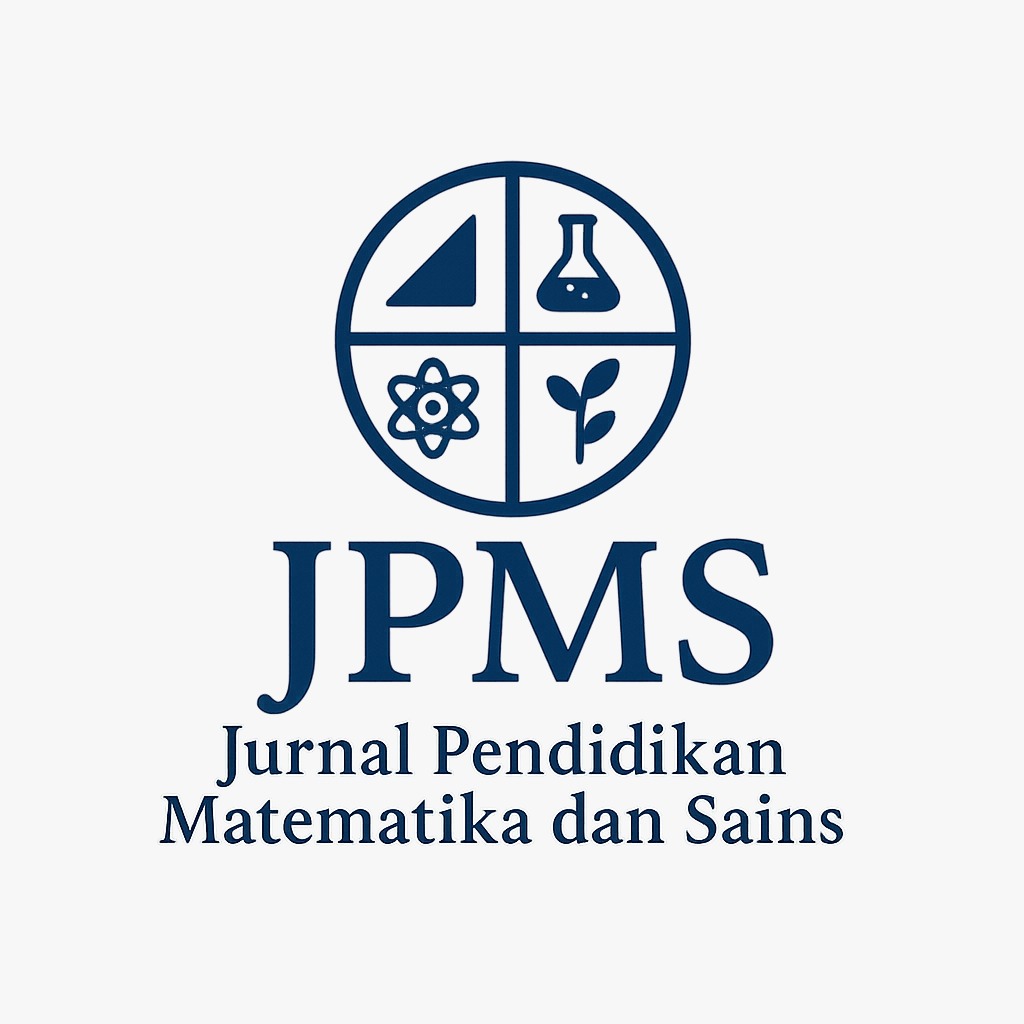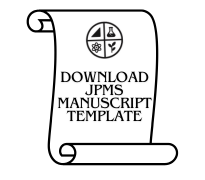Pengembangan lembar kerja siswa berbasis kontekstual berorientasi penalaran saintifik
DOI:
https://doi.org/10.21831/jpms.v5i1.13541Keywords:
LKS, CTL, Penalaran SaintifikAbstract
Abstrak
Penelitian ini bertujuan untuk mengembangkan lembar kerja siswa berbasis kontekstual yang berorientasi pemberdayaan penalaran saintifik siswa. Penelitian dilakukan menggunakan metode penelitian pengembangan model. Perangkat pembelajaran yang dikembangkan dalam penelitian ini adalah silabus, RPP, LKS berbasis kontekstual, instrumen penilaian penalaran saintifik siswa. Perangkat pembelajaran dikembangkan dalam konteks materi ekosistem pantai berbatu. Hasil penelitian menemukan bahwa lembar kerja siswa berbasis kontekstual ini dinilai baik pada semua indikator penilaian yang dilakukan oleh validator (ahli media pembelajaran, ahli materi pembelajaran, guru biologi dan teman sejawat). LKS berbasis CTL materi ekosistem pantai berbatu yang memenuhi kriteria ekosistem atas dasar komponen penyusunnya berpengaruh meningkatkan penalaran saintifik siswa karena menggunakan sintaks CTL yang benar, terlihat pada nilai siswa yang mengalami peningkatan ditinjau dari skor pre-test dan post-test sebelum dan sesudah menggunakan LKS berbasis CTL yang dikembangkan, serta terdapat perbedaan yang signifikan pada data post-test hasil belajar siswa pada kelas eksperimen dan kelas kontrol.
Kata Kunci: LKS, CTL, Penalaran Saintifik
DEVELOPING OF STUDENT WORKSHEET CONTEXTUAL BASED REASONING SCIENTIFIC ORIENTED
Abstrack
This research aims to develop a contextual-based student worksheet empowerment oriented student scientific reasoning. The study was conducted using the method of model development research. Learning tools developed in this study are the syllabus, lesson plans; worksheets based contextual, attitude assessment instruments and scientific reasoning of students. The device was developed in the context of learning materials rocky shore ecosystems. The results found that the contextual-based Student worksheet is considered good in all indicators of assessment conducted by the validator (learning media expert, expert learning materials, biology teachers and peers). Student worksheet ecosystem-based contextual material rocky shore ecosystems that meet the criteria on the basis of its constituent components increased the students' scientific reasoning for using contextual syntax right, looks at the value of students who have increased in terms of the scores of pre-test and post-test before and after use student worksheet developed contextually based, and there are significant differences in the data post-test results of students in the experimental class and the control class.
Kata Kunci: LKS, CTL, Scientific Reasoning
References
Azwar, S. (1995). Sikap Manusia: Teori dan Pengukurannya. Edisi Kedua Yogyakarta: Pustaka Pelajar.
Bao Lei., Kai Fang., Tianfang Cai., Jing Wang., Lijia Cui., Jiung Han., Lin Ding., & Ying Lou. (2009). Learning Of Content Knowledge And Development Of Scientific Reasoning Ability: A Cross Culture Comparison. Am. J. Phys. 77 (12), December 2009 (online) http://aapt.org/ajp.
Borg, R. W. & Gall M. D (1983). Educational Research: An Introduction. 4th Edition. New York: Longmn Inc.
Crone, E. A., Wendelken C., Leijenhorst van L., Honomichl R. D., Christoff, K., & Bunge, S. A. (2009). Neurocognitive Development Of Relational Reasoning. Developmental Science 12:1 (2009), pp 55– 66.
Ferrer, E., O'Hare, E. D., & Bunge, S. A. (2009). Fluid Reasoning and The Developing Brain. Frontiers in Neuroscience. May 2009. Volume 3. Issue 1.
Furchan, A. H. (2004). Pengantar Penelitian dalam Pendidikan. Cetakan I. Yogyakarta: Pustaka Pelajar.
Goswami, U. & Bryant, P. (2007) Children's Cognitive Development and Learning (Primary Review Research Survey 2/1a), Cambridge: University of Cambridge Faculty of Education. ISBN 978-1-906478-08-7.
Johnson, E. B. (2009). Contextual Teaching and Learning: what it is and why it's here to stay (Ibnu Setiawan. Terjemahan). Bandung: MLC.
Kuhn, D. & Pearsall, S. (2000). Developmental Origins of Scientific Thinking. Journal Of Cognition And Development, 2000, Volume 1, pp. 113–129.
Lawson, A. E. (2004). The Nature And Development Of Scientific Reasoning: A Synthetic View. International Journal of Science and Mathematics Education (2004) 2: 307–338
Metallidou, P., Diamantidou, E., Konstantinopoulou, E., & Megari, K. (2012). Changes in Children's Beliefs About Everyday Reasoning: Evidence from Greek Primary Students. Australian Journal of Educational & Developmental Psychology. Vol 12, 2012, pp. 83-92.
Parsons, L. M. & Osherson, D. (2001). New Evidence for Distinct Right and Left Brain Systems for Deductive versus Probabilistic Reasoning Cerebral Cortex . Volume 11, Issue 10. Pp. 954-965.
Sandoval, W.A., Reiser, B. J. (2003). Explanation-Driven Inquiry: Integrating Conceptual and Epistemic Scaffolds for Scientific Inquiry. The Journal Of The Learning Sciences, 12(1), 5–51.
Scheiner, W. (2008). The Development of Metacognitive Knowledge in Children and Adolescents: Major Trends and Implications for Education. Department of Psychology, University of Wí¼rzburg, Wittelsbacher Platz 1, 97074 Wí¼rzburg, Germany. Journal of Mind, Brain, and Education. Volume 2, Issue 3 September 2008. Pages 114–121.
Trianto. (2009). Mendesain Model Pembelajaran Inovatif-Progresif: Konsep, Landasan, dan Implementasinya pada Kurikulum Tingkat Satuan Pendidikan (KTSP). Jakarta: Kencana Prenada Media Group.
Williams, W. M., Papierno, P. B., Makel, M.C., & Ceci, S. J. (2004). Thinking Like A Scientist About Real-World Problems: The Cornell Institute for Research on Children Science Education Program. Applied Developmental Psychology 25 (2004) 107–126.
Ya-Wen Liao. & Hsiao-Ching She. 2009. Enhancing Eight Grade Students' Scientific Reasoning Throught a Web-Based Learning Program. Education Technology & Society, 12(4), 228-240
Downloads
Published
How to Cite
Issue
Section
Citation Check
License
Jurnal Pendidikan Matematika dan Sains allows readers to read, download, copy, distribute, print, search, or link to its articles' full texts and allows readers to use them for any other lawful purpose. The journal allows the author(s) to hold the copyright without restrictions. Finally, the journal allows the author(s) to retain publishing rights without restrictions
- Authors are allowed to archive their submitted article in an open access repository
- Authors are allowed to archive the final published article in an open access repository with an acknowledgment of its initial publication in this journal

This work is licensed under a Creative Commons Attribution-ShareAlike 4.0 Generic License.





